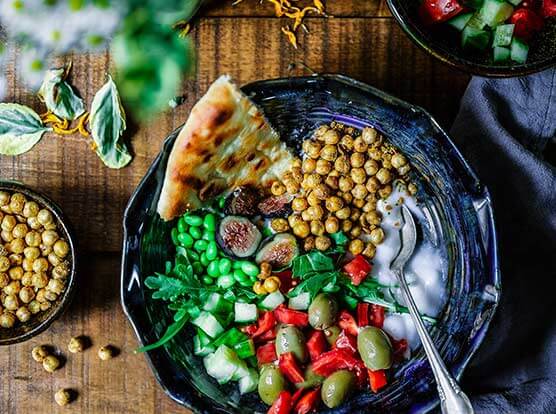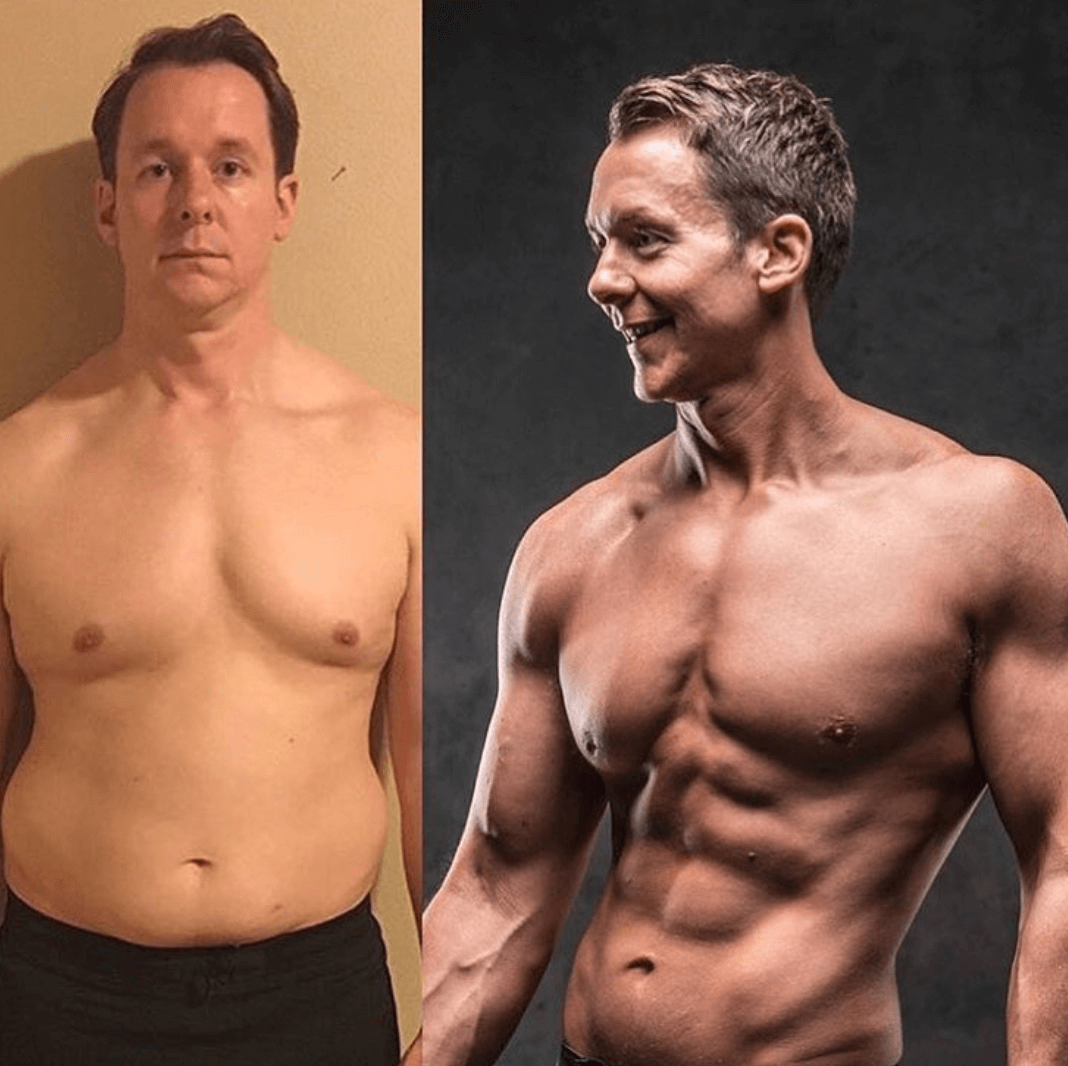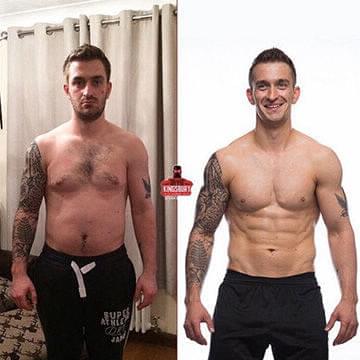Macronutrients, or macros for short, are the fuel in your food which your body needs to keep itself going.required by the body in large quantities. When people in the fitness world talk about macros, they are usually just talking about our three sources of energy: fat, protein and carbohydrates.
I’ll go through each of these macros, explain what they’re for, and what you can do to get more or less in your diet.
Carbohydrates
Carbs get a bit of a bad rep in the fitness world, but as far as your body is concerned, carbs are the fastest and easiest form of fuel available.
There’s two types of carbs: complex carbs and sugars.
Sugars are carbs which your body finds it really easy to utilise. They’re like kindling: quick to burn but they don’t last long. As such they’re a great form of fuel if you’re exercising hard. However, eat too much and your body converts the excess to fat.
Complex carbs are the carbs found in grains, pasta and pulses. These are like the logs for the fire. Slower to burn with a steadier release of energy. When you’re exercising, mixing up your carbs is a great way to keep yourself fuelled for longer.
If carbs are such a great fuel for my body, why do they get such a bad rep?
For a start, carbs, especially sugars, are really tasty and not very filling. It’s therefore really easy to eat too many and put on weight. Also, a number of studies have shown that on identical calorie intakes, people with a higher carb content in their diet tend to lose weight less quickly. This effect should not be overstated though. As a rule, calories are king, and the amount of carbs in your diet is secondary.
100g of carbs contains about 400 calories. Grains like rice contain about 30g of carbs per 100g, so 100g of rice contains about 120 calories.
Fat
Probably the least appealing sounding of the macros, but in moderation there’s nothing wrong with getting a bit of fat in your diet.
Fat is even slower burning than complex carbs. It’s the last thing your body would choose to burn, which is why it can be so hard to lose it from your belly. However, your fat reserves are what keep you warm in the cold, and what can keep you moving for days on end if you were ever to get lost somewhere without food. Fats also help you absorb certain vitamins and there’s evidence that getting enough fat in your diet can boost your immune system and improve brain function.
Fat can be found in meats, fish, nuts and seeds, oils, egg yolks, cream and avocados, which is why avocados taste so good.
Fats come in three main flavours: saturated, unsaturated and trans-fats. Saturated fats tend to be solid at room temperature (such as coconut oil, butter and fatty meats) while unsaturated fats tend to be liquid at room temperature (like the oils in avocado, nuts and olives). Trans-fats (with some exceptions) are artificial fats made to last longer. These are found in heavily processed foods like cookies and doughnuts, and are commonly used for deep fat frying.
Research has shown that people with more saturated fats in their diet tend to have a higher risk of heart disease, so most health bodies recommend the unsaturated (liquid) fats, especially those found in fish and nuts, over the saturated (solid) fats.
Just to complicate things, there are different types of saturated fats. The catchily named Medium Chain Glycerides (MCTs) found in coconut oil and dairy products have a number of health benefits, including aiding weight loss, increased energy and improved memory. This does not mean you should eat buckets of coconut oil; it’s still very calorific; but it’s probably not as bad as the fats in fatty meats.
Trans-fats on the other hand should be avoided like the plague. There’s a wealth of research showing how awful these fats are for your health and there’s been talk of banning them outright in the UK for years (they were banned in the US this year).
100g of fat (whatever the flavour) contains about 900 calories. This makes fat far and away the most calorie dense of the macros, and explains why 100g of raw nuts contains more calories than 100g of pure sugar (600 calories compared to 400 calories). If I had to choose though, I’d eat the nuts.
Protein
Last but not least, protein. Protein is made of amino acids, which are required almost everywhere in your body. If you don’t eat enough of these, your body will start to break down muscle in your body to create its own.
The big sources of protein are meats. Low fat meat such as chicken and turkey are especially good sources of protein as they contain very little fat and almost zero carbs. However, there’s plenty of veggie sources of protein too, such as dairy products, Quorn, certain grains and pulses like lentils and chickpeas, and soy or soy products such as tofu, tempeh and edamame beans. If you want to know more about veggie sources of protein, check out my blog post on the subject.
The UK recommended minimum intake of protein is about 10% of calories from protein, but this is the bare minimum to remain healthy. I would recommend eating a lot more than 10% protein, especially if you are trying to build muscle. As muscles are made of protein, if you aren’t eating enough protein, you won’t be able to grow muscle. I would recommend eating about 40-50% of calories from protein if you are trying to build muscle, and around 30% if you are just trying to keep healthy.
Protein has also been shown to be filling. So if you’ve got a big appetite, eating a lot of protein will help prevent you from getting hungry again too soon.
Protein is almost exactly as calorie dense as carbs: 400 calories per 100g. 100g of chicken breast contains about 30g of protein and 3g of fat, working out to 120 calories of protein and about 30 calories of fat.
How do your macros influence your results?
Whilst the sum total of your macros are responsible for weight change, the relative amount of each macro influences changes in body composition and athletic performance.
The right balance of macros for you is determined by your goals and lifestyle. Muscle builders should focus on getting a good amount of protein. If your goal is to lose weight and get lean, aiming to reduce your carb intake, especially sugars, is a good start. If you exercise a lot or are a long distance cyclist/runner, you’ll probably want to include a wide range of carbs in your diet.
If you want to know more about what macros you should be eating to meet your goals, get in touch.










